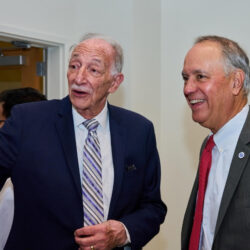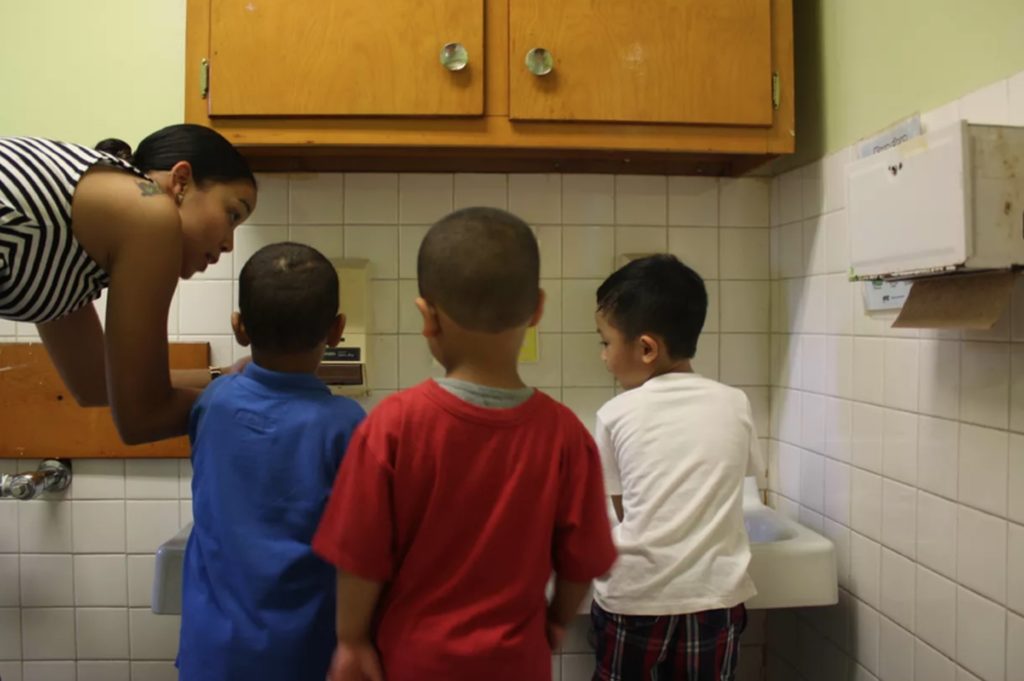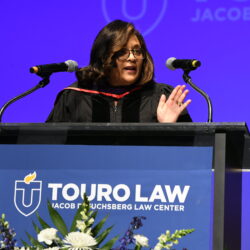
NYC vows to provide child care for 100K families to ease burden of part-time school schedules

“NYC vows to provide child care for 100K families to ease burden of part-time school schedules” was originally published by Chalkbeat, a nonprofit news organization covering public education. Sign up for their newsletters here.
With students poised to be in school buildings only part-time this fall, New York City is racing to make child care available to 100,000 families by the time classes kick off in September, Mayor Bill de Blasio announced Thursday.
Child care has been a crucial but largely missing link to reopening the economy in the wake of the coronavirus crisis. Most students will only attend in-person classes one to three days a week in the next school year, posing a logistical and child care burden for working families.
“Parents who have been struggling for months to somehow find a way to keep their livelihood while educating their children, or God forbid, they’ve lost their livelihood,” de Blasio said at a press conference. “Child care will make all the difference in the world.”
Still, the number of seats available for families is likely to fall far short of what’s needed for a school system that serves more than 1 million public school students. And with many details still unknown, parents will have a hard time planning for the school year ahead.
Among the unanswered questions: whether all the slots will open on time, who will get priority to enroll, and when sign ups can begin. Also unclear: the hours that the centers will operate, who will staff them, and where they will be located.
Officials said the expansion will cost the city at least $30 million a month. De Blasio said families will receive care “regardless of their ability to pay,” but did not elaborate. It’s unclear whether there will be a fee for care after school hours.
“We will make sure that every parent who needs help, we will look for every option,” he said.
The aim is to serve students from pre-K through eighth grade on the days they will not be in class, along with after-school care and specific programming for early childhood years. Programs are expected to take place in a variety of settings, from libraries to cultural institutions. Officials are turning to existing child care centers, after-school care programs, and community organizations to open up slots, while scouring the five boroughs to find “every conceivable space” to expand, de Blasio said.
“We are everywhere throughout this city, and we will find space,” said Lorraine Grillo, who heads the city’s School Construction Authority.
Providers themselves face huge questions about how to open their doors safely, and say they are still waiting on the city for more guidance and resources to do so.
“We don’t want to feel like this decision to open early childhood centers is solely based on the need to get back to work. We want the decision to have children getting back to school … be based on it being safe,” said Michelle Paige, associate executive director early childhood programs at the social services organization University Settlement. “It’s going to take a good amount of planning and collaboration to get that done.”
Programs will follow the state’s guidelines limiting the number of children in a room to just 15 and the city will provide protective equipment including masks, said Melanie Hartzog, the city’s budget director.
The city has some experience to draw on: In 2014, the de Blasio administration rolled out a massive expansion of free pre-K, tripling the number of full-day seats to about 70,000 to make the program available to every 4-year-old.
That happened over two years. This time around, however, officials are staring down a ruthless deadline of just two months. School is scheduled to begin September 10.
The scale of need is also beyond compare. Before COVID-19 hit, city-regulated day care centers and preschools had room for about 150,000 children — but a three-month shutdown due to the virus has forced an untold number out of business completely.
The dash to open up seats could also whiplash community organizations that contract with the city to provide youth services, who have contended with financial uncertainties brought on by the virus. For example, after de Blasio initially decided to cancel all summer youth employment programs, a smaller number of program slots were saved during budget negotiations and providers scrambled to open up at the last minute.
“This is a totally new situation. [Community Based Organizations] have already been doing a lot to adapt and to figure out new ways of providing early childhood programs and youth programs,” said Gregory Brender, director of children and youth services at United Neighborhood Houses. “It’s important that the city includes the voice of providers as they plan this, not just expecting programs will ramp up after decisions have been made.”
For Jemma An, a mother of two in the Bronx, the city’s plan falls far short of what families need.
She is waiting to hear more about after-school care options, since it will be a struggle to pick up her fourth- and fifth-graders before 5 p.m. — even on the days they do have class. And with so few child care seats potentially available, An was skeptical she could snag a spot, and worried about the logistics of getting both children into the same center. Without those crucial details, An, an attorney, said she can’t plan ahead to request a flexible work schedule, or find family members willing to pitch in with child care.
“I’m just waiting for the plan to know what I’m going to do,” she said. “But right now everything is so up in the air that I can’t even reach out to people and see what they’re willing to do.”
Chalkbeat is a nonprofit news site covering educational change in public schools.
Leave a Comment
Leave a Comment





